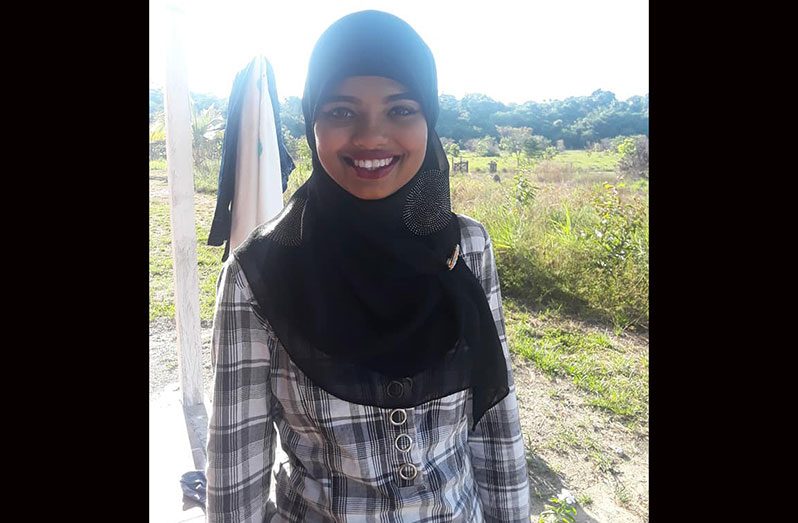Young environmentalist moulding Rupununi youth
Across Guyana, hinterland communities sometimes find it difficult to retain their young trained and skilled residents, who often prefer relocating to the city and coastland regions. On the other hand, a few young persons have made the opposite transition from coast to hinterland. Twenty-six-year-old Hadeeyah Asgar is one such individual. An environmentalist, an artist,
an educator, a researcher and more – she was captivated by the scenic beauty and resilience of the people of the Rupununi. After graduating from the University of Guyana with a BSc. in Environmental Studies in 2017, Hadi, as she is well known, headed to live and work in the highland region.
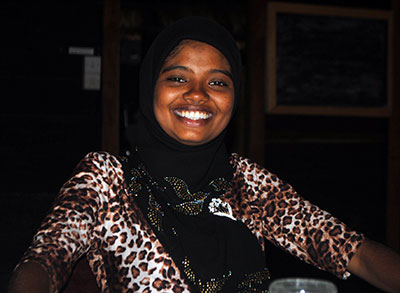
A teacher at the Annai Secondary School, North Rupununi, Hadi is currently preoccupied with prepping indigenous students for the Caribbean Secondary Examinations Council (CSEC) Exams despite limitations imposed by the COVID 19 pandemic. Before her employment in the formal school system at Annai from 2019, Hadi previously taught in nearby villages.
“I have done informal teaching in villages such as Rewa and Surama, which gave me the courage to take up the challenge to educate and build young minds here at Annai,” Hadi relayed in a recent interview. She added, “my biggest inspiration came from the people of the Rupununi who were striving for their best with limited resources and I thought this was my chance at helping them.”
Born in Georgetown to a family of the Islamic Faith, Hadi described her religious practices as most challenging during relocation since Rupununi population is predominantly Christians. Miles away from her family, friends and conveniences to which she was previously accustomed, Hadi noted transportation as another issue she still finds personally distressing.
“As compared to Georgetown where you can readily access transportation services, here it is either walking, cycling or riding (motorcycle). There are minibuses that traverse the route Georgetown-Lethem and Lethem to the other villages. But, for simple tasks such as going to the shop it is difficult to get transportation,” the young woman indicated.
Nevertheless, she is not daunted and boasts of having made numerous friends within various villages and with whom she shares a good relationship, as they provide support, comfort and a familiar feeling of home.
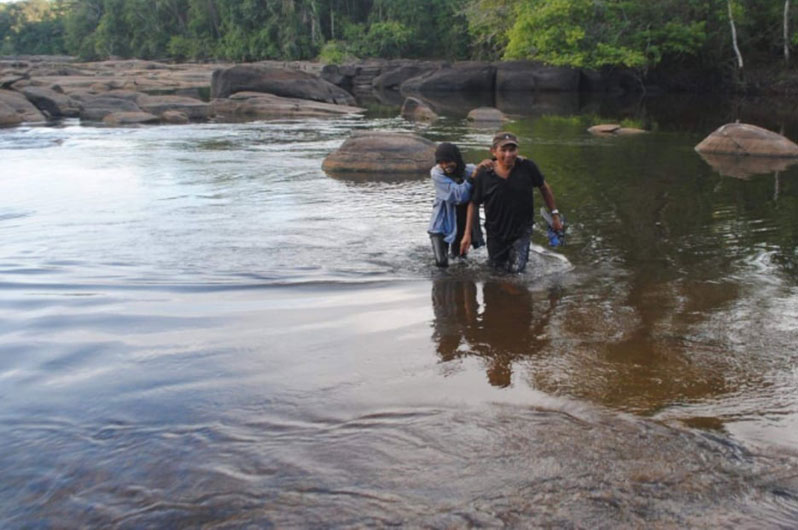
“They are always sending me little presents such as cassava bread, farine, wild meat, cassareep just to name a few,” Hadi said with a much delight, and further highlighted her visit to all districts of the Rupununi regions, which buoyed her fascination for the people, their rich culture and simple way of life amidst the most beautiful landscape. It is very different from the environments in which Hadi spent her childhood years including on the Essequibo Coast and East Coast Demerara.
The eldest of two girls, Hadi attained secondary education at Isa Islamic School where she wrote CSEC before she completed two years at St. Rose’s High and successfully sat the Caribbean Advanced Proficiency Examination (CAPE) in 2013. Immediately thereafter, the young woman enrolled at UG. Around the same time, she first ventured to the Rupununi in the company of a friend to conduct some Agricultural Surveys in villages in Region 9. After graduating from University, Hadi returned to the Rupununi on fieldwork, and at the time while seeking employment, she applied for the teaching post at Annai. According to the young woman, she was encouraged by her friend and mentor, notable indigenous educator, Dr. Laureen Pierre, who is also Principal of the Bina Hill- Youth Learning Centre.
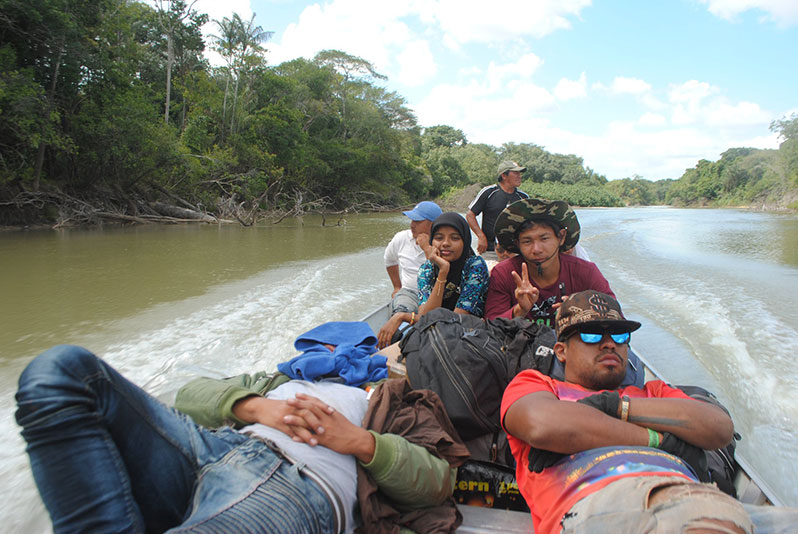
Moving Circle of Artists
Aside from teaching, Hadi is the Coordinator of the Moving Circle of Artists (MCA), a group influenced by the late George Simon. MCA supports the work of indigenous artists in Guyana with a strong focus on encouraging young talents to share their skills and knowledge in indigenous communities. This process involves travelling, conducting workshops for villagers, making public presentations, organizing art displays and report writing. Since she joined the group in 2017, Hadi has engaged in hosting the Rupununi Music and Arts Festival at Manari Ranch and also at the Georgetown Connection.

“I took up the responsibility of heading a team of six with me being the only female, to conduct an art workshop in Rewa Village. There I accompanied Andrew Campbell on a three-day river expedition on the Rewa River where he did an archaeological survey and I did a survey on the impacts of mining in the Marudi area on villages and the environment in the North. I also supervised a one month workshop in Surama village and a few at Karanambu Ranch,” the young woman explained, of her involvement and contributions to MCA.
Her most prized output is the Rewa Rewa Workshop where, for three years after the event, Hadi said youths were still creating art pieces and contributing to their villages’ development. Some of these are pieces are sold through social media while others are sent to Georgetown for marketing.
With personal goals to pursue a Master’s degree in Limnology and wetland management, Hadi said her vision for MCA is to one day establish a school where youths of the Rupununi are enabled to comfortably express and exchange their skills and talents with each other.
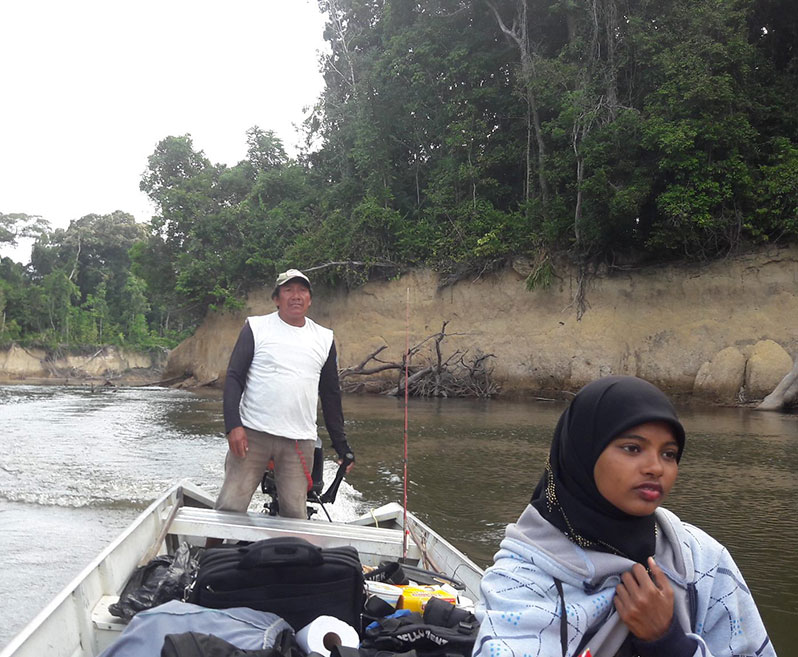
During an expedition with MCA colleague Andrew Campbell, Hadi participated in a three-day expedition along the Rewa and Quitaro rivers to better understand the specific environment and archaeological matters. Hadi focused on the effects of mining and other environmental issues on the rivers and inhabitants whereby she zeroed in on pollution, overfishing and overhunting.
Over the years, Hadi participated in various presentations on the findings of several environmental research including the Fifth International Congress of Biodiversity on the Guiana Shield in Columbia 2019.



.jpg)




